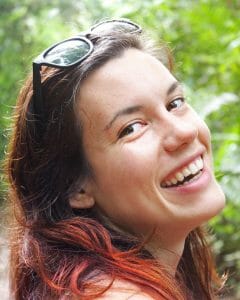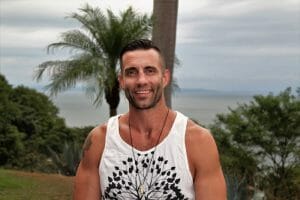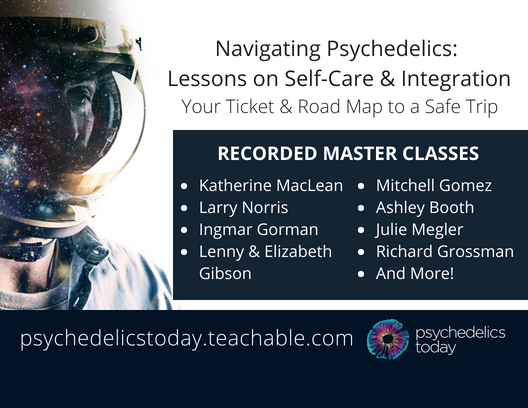Melissa Stangl and Daniel Cleland - Soltara Healing Center: Where Integration meets Tradition
Release Date: 04/21/2020
 PT506 – Decolonization, Difficult Conversations, and the Challenge of Merging Spirituality and Science, with Philip Wolf
PT506 – Decolonization, Difficult Conversations, and the Challenge of Merging Spirituality and Science, with Philip Wolf
Psychedelics Today
In this episode, Joe interviews Philip Wolf: writer, member of Rolling Stone's Culture Council, founder of Cultivating Spirits (the first company in the U.S. to offer legal culinary cannabis experiences), and founder of CashoM, an education company offering a certificate in cannabis stewardship. He discusses his recent Rolling Stone article about the need to divorce ourselves from the colonial mindset that pervades the psychedelic movement, and he talks about the difficult conversation that came about when he asked a very critical group of psychedelic leaders how they felt about the article,...
info_outline PT505 – Bicycle day Reflections, Quantum Mechanics, and the Value in Studying Philosophy to Understand Psychedelic Experiences, with Lenny Gibson, Ph.D.
PT505 – Bicycle day Reflections, Quantum Mechanics, and the Value in Studying Philosophy to Understand Psychedelic Experiences, with Lenny Gibson, Ph.D.
Psychedelics Today
In this episode, Joe and Kyle interview Lenny Gibson, Ph.D.: philosopher, Grof-certified Holotropic Breathwork® facilitator, 20-year professor of transpersonal psychology at Burlington College, and the reason Joe and Kyle met many years ago. He talks about his early LSD experiences and how his interest in the philosophy of Plato and Alfred North Whitehead provided a framework and language for understanding a new mystical world where time and space were abstractions. He believes that while culture sees the benefits of psychedelics in economic terms, the biggest takeaway from non-ordinary...
info_outline PT504 – Rethinking Drug Education: From D.A.R.E. Scare Tactics to an Evidence-Based Approach, with Joey Lichter, Ph.D.
PT504 – Rethinking Drug Education: From D.A.R.E. Scare Tactics to an Evidence-Based Approach, with Joey Lichter, Ph.D.
Psychedelics Today
In this episode, Joe interviews Joey Lichter, Ph.D.: professor in the Chemistry & Biochemistry department at Miami’s Florida International University, and one of the few professors in the U.S. teaching a course about psychedelics at the collegiate level. He talks about his path towards the course, the challenge of creating a curriculum that covers everything in a few months, and the importance of teaching young minds about psychedelics the right away; shifting drug education from the “Just say no!” D.A.R.E. model to a more balanced, honest, and evidence-based approach. He aims for...
info_outline PT503 – Updates from MAPS: Current Initiatives, Psychedelic Science 2025, and Music as a Bridge, with Devon Phillips
PT503 – Updates from MAPS: Current Initiatives, Psychedelic Science 2025, and Music as a Bridge, with Devon Phillips
Psychedelics Today
In this episode, Joe interviews Devon Phillips: community & partnerships officer for the Multidisciplinary Association for Psychedelic Studies (MAPS). Phillips works on strategies to tackle the questions: How do we responsibly mainstream psychedelics? And how do we get culture engaged? He's focusing on being the bridge to psychedelics outside of research, facilitating workshops and psychedelic coming-out stories at music festivals and conferences. He talks about harm reduction and drug checking at festivals, the concept of training big names to become trustworthy resources, the differences...
info_outline PT502 – Preserving Psychedelic Legacies: Shulgin Farm and the Shulgin Archive Project, with Keeper Trout
PT502 – Preserving Psychedelic Legacies: Shulgin Farm and the Shulgin Archive Project, with Keeper Trout
Psychedelics Today
In this episode, Joe interviews Keeper Trout: archivist, author, photographer, co-founder of the Cactus Conservation Institute, and creator of Trout’s Notes, a website compiling personal research and collected data to help ethnobotanical researchers. From an interest in cactus taxonomy, Sasha Shulgin urged Trout to go through his files, resulting in a friendship, and eventually, an 8-year project of digitizing all of these files into the ever-evolving Shulgin Archive. Trout discusses: His relationship with Sasha and The Shulgin Farm project, which aims to make the farm a community resource...
info_outline PT501 – Women and Psychedelics, Microdosing, and the Challenges of Psychedelic Parenthood, with April Pride
PT501 – Women and Psychedelics, Microdosing, and the Challenges of Psychedelic Parenthood, with April Pride
Psychedelics Today
In this episode, Alexa interviews April Pride: creative entrepreneur, veteran of the cannabis space, and now, founder of SetSet, an educational platform and podcast (picking up where The High Guide left off) for women curious about psychedelics. With Alexa about to embark on the journey of motherhood, she asks many of the questions parents working with psychedelics have to consider: How do you overcome the stigmas of being a psychedelic parent? How do you talk to your children about drugs? How do you know if a substance is ok to use during pregnancy? Pride discusses: Being dubbed “the weed...
info_outline PT500 – Shulgin Farm and the Future of Psychedelic Drug Development, with Paul F. Daley, Ph.D.
PT500 – Shulgin Farm and the Future of Psychedelic Drug Development, with Paul F. Daley, Ph.D.
Psychedelics Today
In this episode, Joe interviews Paul F. Daley, Ph.D., who worked with Sasha Shulgin in his lab for the last seven years of his life, helping him finish (and co-authoring) "The Shulgin Index, Volume One: Psychedelic Phenethylamines and Related Compounds." He is now the co-founder, Chief Science Officer, and Director of Analytical Science at the Alexander Shulgin Research Institute (ASRI), focusing on the discovery and development of novel psychedelic compounds. While Sasha was passionate about self-experimentation, the Institute is aiming for the next step for these drugs: FDA approval. ...
info_outline PT499 – Osiris González Romero – Mesoamerican Psychedelics, Decolonization, and the Concept of an Ontological Turn
PT499 – Osiris González Romero – Mesoamerican Psychedelics, Decolonization, and the Concept of an Ontological Turn
Psychedelics Today
In this episode, David interviews Osiris González Romero: philosopher and Postdoctoral researcher on cognitive freedom and psychedelic humanities at the University of Saskatchewan. Romero believes that our weakest point of research is our knowledge of Indigenous languages, and is focused on highlighting different cultural uses of psychedelics to better inform future drug policy. He’s currently studying more than 100 documents (including one over 400 years old) to establish an honest understanding of why peyote was ever banned. He discusses: Mesoamerican psychedelics and their relevance to...
info_outline PT498 – Maria Mangini, Ph.D., FNP – Traversing the Psychedelic Landscape: From Esalen and Millbrook to the Future of Shulgin Farm
PT498 – Maria Mangini, Ph.D., FNP – Traversing the Psychedelic Landscape: From Esalen and Millbrook to the Future of Shulgin Farm
Psychedelics Today
In this episode, Joe interviews Maria Mangini, Ph.D., FNP: researcher, educator, and midwife who has worked closely with many psychedelic innovators and was part of the original social network at Shulgin Farm – where this episode was recorded. She traces her journey from the influence of pioneers like the Wassons, Shulgins, and Grofs, and historic places like Esalen and Millbrook. She discusses: Her early experiences with the Grofs at Esalen and how she met the Shulgins Gregory Bateson guiding her to become a midwife The similarities between midwifery and psychedelic facilitation The unsung...
info_outline PT497 – Wendy Tucker – Reflections from Shulgin Farm: Psychedelics, Legacy, and the Spirit of Discovery
PT497 – Wendy Tucker – Reflections from Shulgin Farm: Psychedelics, Legacy, and the Spirit of Discovery
Psychedelics Today
In this episode, released on Ann Shulgin’s birthday, Joe interviews Wendy Tucker: daughter of Ann and stepdaughter to Alexander “Sasha” Shulgin. Recorded in Sasha’s old office, she recounts her formative years, giving an insider’s look into her Mother’s openness about psychedelics, working with Sasha in the lab, how the Shulgins made a perfect team, and watching a close-knit circle of self-experimenters start to form at Shulgin Farm – and keep coming back over the years. She talks about the energy infused into the property from the decades of research and gatherings, and how she...
info_outlineIn this episode, Kyle interviews Melissa Stangl and Daniel Cleland, Co-founders of Soltara Healing Center. They talk about integration, Shipibo healing lineage, accessibility of psychedelics, and psychedelic tourism.
3 Key Points:
- Soltara is a Healing Center dedicated toward integration as well as practicing and preserving the Shipibo tradition of Ayahusca healing.
- It doesn't make sense to take nature based traditions and turn it into instant gratification and business. The further you get from tradition, the less beneficial it may be.
- Tourism for Ayahuasca can bring both harm and benefits to the local community. Reinforcing the heritage, paying the healers very well and giving back to the forests in terms of sustainability are all ways that Soltara is using Ayahuasca tourism to help the local communities.
Support the show
- Patreon
- Leave us a review on iTunes
- Share us with your friends – favorite podcast, etc
- Join our Facebook group - Psychedelics Today group – Find the others and create community.
Navigating Psychedelics
Show Notes
About Melissa
- Melissa originally comes from the STEM field
- She was working in corporate America and was in search for a deeper meaning
- She met Dan and after joining one of his initial ayahuasca journeys into Peru, it changed her mindset about healing
- Dan looked for someone to help him after starting up his first ayahuasca center in Peru, and so she dropped everything and moved to the jungle to make it happen
- After witnessing the healing potential working within the Shipibo tradition, and the need for integration within the community, she later founded Soltara with Dan in Costa Rica
About Daniel
- Daniel grew up in a small town in Canada
- He followed the typical life trajectory, go to school, go to college, get a job, etc
- He didn't have big ambitions at the time, very in line with the middle class area that he grew up in
- After entering the work-force, he was in un-ambitious jobs
- He thought “are there just 30 years of doing this until this is over?”
- He felt a strong pull towards South America
- He was very close to nature in his upbringing
- He got a job leading tours
- He had a personal crisis that led him to do some soul searching
- Within the span of a few years, the trajectory pushed him to build his own healing center in Peru
Pillars of Soltara
- They feel very strongly about having the Shipibo healers lead the ceremony, and everything that they (Mel, Dan and the team) do is to help honor the tradition
- They focus a lot on integration
- For the Shipibo culture, their life is integraton, but for a lot of people that are coming from the Western world and other places, that is not the case
- They started collaborating with clinical psychologists to help create a program that puts the retreat at the start of the program, the work comes after
- Soltara includes a workbook for integration afterward
- Our transition times in modern life are shamed, getting your period, having a mid life crisis, having a psychedelic experience, but these experiences can be very sacred
- “Connecting to the sacredness of life is so healing and so needed for modern-day society” - Melissa
Container for Safety and Integration
- The sensationalism is more around the experience itself
- People think that you just go in and have the experience and then your life is changed forever and that is not the case
- A place where people not only can find who they are, but then be who they are in that container, and meet people and create community, is so powerful
- Kyle said when he attended his retreat there, he can't shake how safe he felt
He said it really stood out to him, for someone who is looking at integration and so involved in this field
- Kyle said when he attended his retreat there, he can't shake how safe he felt
- “I would like to bring people to this tradition in a way that is accessible, and I think that starts with safety” - Melissa
Corporadelic
- There are new products, treatment centers, etc
- The further away you get from tradition, the less beneficial it may be
- Dan says it doesn't make sense to take nature based traditions for instant gratification, monopoly, and business
- The ceremony is the healing part, the ayahuasca allows one to connect with the plants, and that it is just the songs in ceremony that really create the healing
- Melissa says she understands that the science is helping the movement, but she is so afraid that big corporations will just run with this and ruin tradition around it
- Kyle says during his experience at Soltara, he just felt flooded with gratitude to experience the medicine healing in nature and in the Shipibo culture, where it is natural
Ayahuasca Tourism
- Tourism for Ayahuasca causes harm but also brings benefits to the community too
- Dan says they are expanding the work, they are not taking away from the traditions
- It takes a certain capacity to travel to the jungle, speak the language, figure out where to go, how to get there, and how to receive healing is not typically possible for the vast majority of people
- The Shipibo is receiving really good pay doing this work, which isn't typically possible for the indigenous people
- This is also reinforcing the heritage, encouraging the children to continue the traditional path
- Now it’s not only a cultural heritage, it's also a way to make a living for the community members
- You don't cut down trees to grow ayahuasca, you grow ayahuasca among the trees, so it's protecting the jungle
- In recent years there has been more information and collective awareness to ask the hard questions, Bia Labate has been on the forefront of this, asking the indigenous leaders the important questions of how to keep Ayahuasca tourism sustainable, beneficial and protected
Sustainability
- They just completed a fundraiser for the Amazon
- They have been collaborating with Amazon Watch, and they raised over $10,000
- They are working to plant new Ayahuasca, not to harvest but just to put back into the jungle
Final Thoughts
- Melissa suggest listeners to watch Reconnect, a movie about a man’s journey to Soltara
Links
About Melissa Stangl

After taking a leap of faith in September 2015 to step out of Corporate America and into the Amazon jungle, Melissa has since used her background in engineering, science, and management to help advance the plant medicine and psychedelic movements – first by helping run a top-rated ayahuasca center in Peru as Operations Manager, and then as Director of Business Development – and now as Founding Partner and COO for Soltara. She is passionate about using her technical, managerial, and problem-solving skills to help bridge the gap between the Western world and the incredible healing potential of plant medicines and holistic health. Melissa is honored to be a part of this project and working with such a high-quality team that understands the importance and sacredness of this work. Her ethos is one of authenticity, professionalism, respect for tradition, transparency, and high-quality service. These mutual tenets are the team’s vision for Soltara as a whole, and she is grateful to take part in creating a space that is a strong conduit for healing, sustainability, and knowledge, empowering each guest to become global beacons for positive change.
About Daniel Cleland

Daniel Cleland is the Founding Partner/Chairman and CEO of Soltara Healing Center. He is an international entrepreneur, traveller, and author of the book, Pulse of the Jungle: Ayahuasca, Adventures and Social Enterprise in the Amazon. Originating in Walkerton, Ontario, he has spent over a decade globe-trotting and hosting group tours all over Latin America and in the deepest parts of the Amazon to work with traditional indigenous medicine practices. After completing his Master’s of Intercultural and International Communication, Daniel founded the company Pulse Tours, a company operating in Peru which became one of the highest rated shamanic retreat centers in the world before he sold it completely in 2017. He believes in supporting sustainability initiatives around the world, such as a free solar power installation that he spearheaded for an entire village in the Amazon in 2017, and the work being done by Amazon Rainforest Conservancy, a Canadian NGO wherein Daniel sits as a member of the advisory board.
 Get a 30 day free audible trial at audibletrial.com/psychedelicstoday
Get a 30 day free audible trial at audibletrial.com/psychedelicstoday




